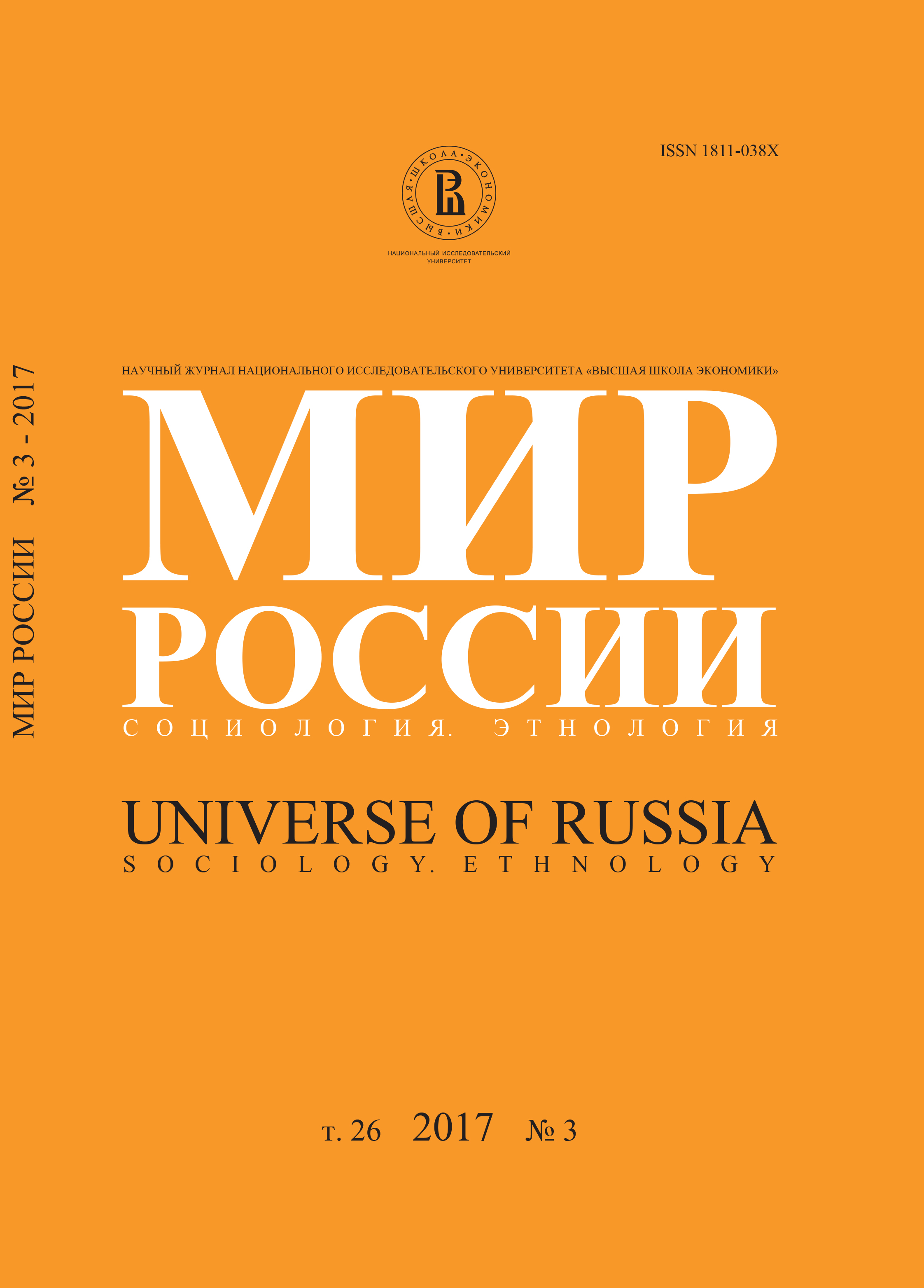The Industrial Culture of Modern Russian Workers as an Element of Their Human Capital: an Ethnometric Analysis Using Hofstede’s Model
Abstract
Nataliya Latova — Candidate of Science in Sociology, Senior Research Fellow, Institute of Sociology, Russian Academy of Sciences. Address: bld. 5, 24/35, Krzhizhanovskij St., Moscow, 117218, Russian Federation. Email: myshona@rambler.ru
Citation: Latova N. (2017) The Industrial Culture of Modern Russian Workers as an Element of Their Human Capital: an Ethnometric Analysis Using Hofstede’s Model. Mir Rossii, vol. 26, no 3, pp. 36–63 (in Russian). DOI: 10.17323/1811-038Х-2017-26-3-36-63
This article studies the industrial culture of different occupational groups. Particular attention is paid to the industrial and organisational culture of people in working class occupations. The analysis is based on the ethnometric technique of Hofstede (Value Survey Module 1994).
The study reveals that Russians constitute a relatively homogeneous nation, which is almost equally distant from both Eastern and Western nations in its cultural characteristics. In spite of a certain amount of variation between different groups of workers, representatives of all major Russian classes of occupations— upper and lower grade professionals, manual and non-manual workers — are quite similar to each other, and at the same time quite distinct from representatives of same occupations in other countries. However, a certain degree of dissimilarity exists between these groups, on the one hand, and the group of entrepreneurs, self-employed and managers, on the other hand. The cultural characteristics of the latter are much closer to the ones observed in Western nations.
Russian workers are characterized by the following cultural peculiarities: high “Uncertainty Avoidance” (effective work is possible only when there are clear rules and minimised individual risk), low “Masculinity” (the importance of relationships in the team, the priority of maintaining a favourable production climate as opposed to achieving a result at any cost), average “Individualism” (the importance of linking the results of labour with the personal achievements of a particular employee) and low “Power Distance” (the desire to have accessible and equal leader).
Although distinct from their Western counterparts, Russian workers share some specific features with workers from other countries: they are more focused towards hierarchy and to a lesser extent are characterized by the presence of achievement motivations.
The specific industrial culture of Russian workers is also compatible with a specific form of work organization formed historically in Russia — artels. Russian industrial culture is also highly stable and therefore increasing productivity, economic efficiency and returns on the human capital of Russian workers would rely on more traditional forms of employment, rather than adopting new organizational models.






